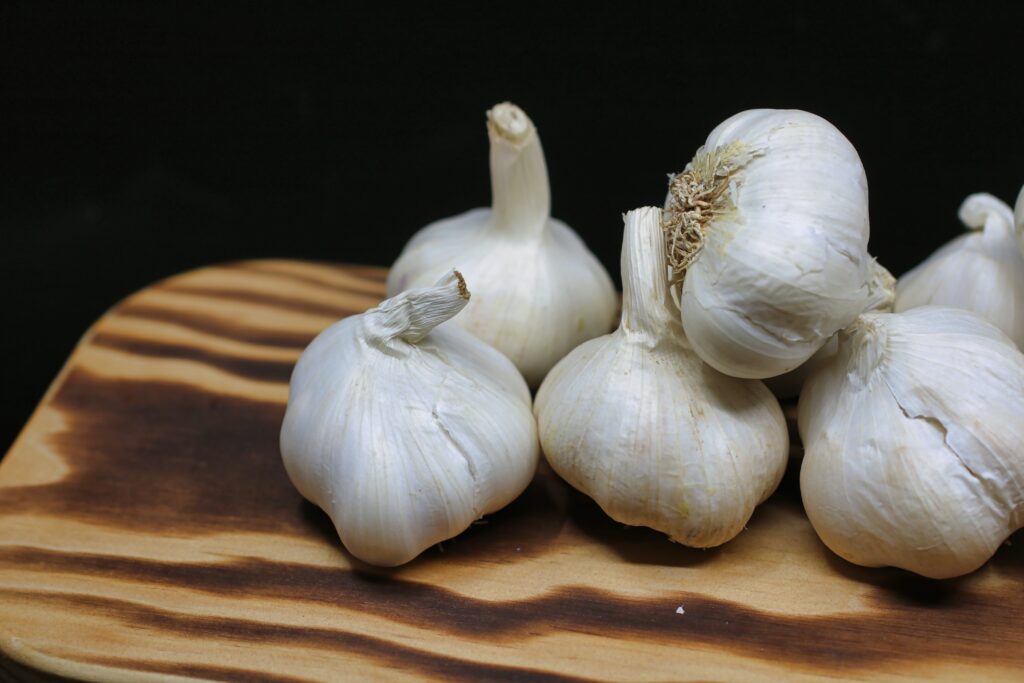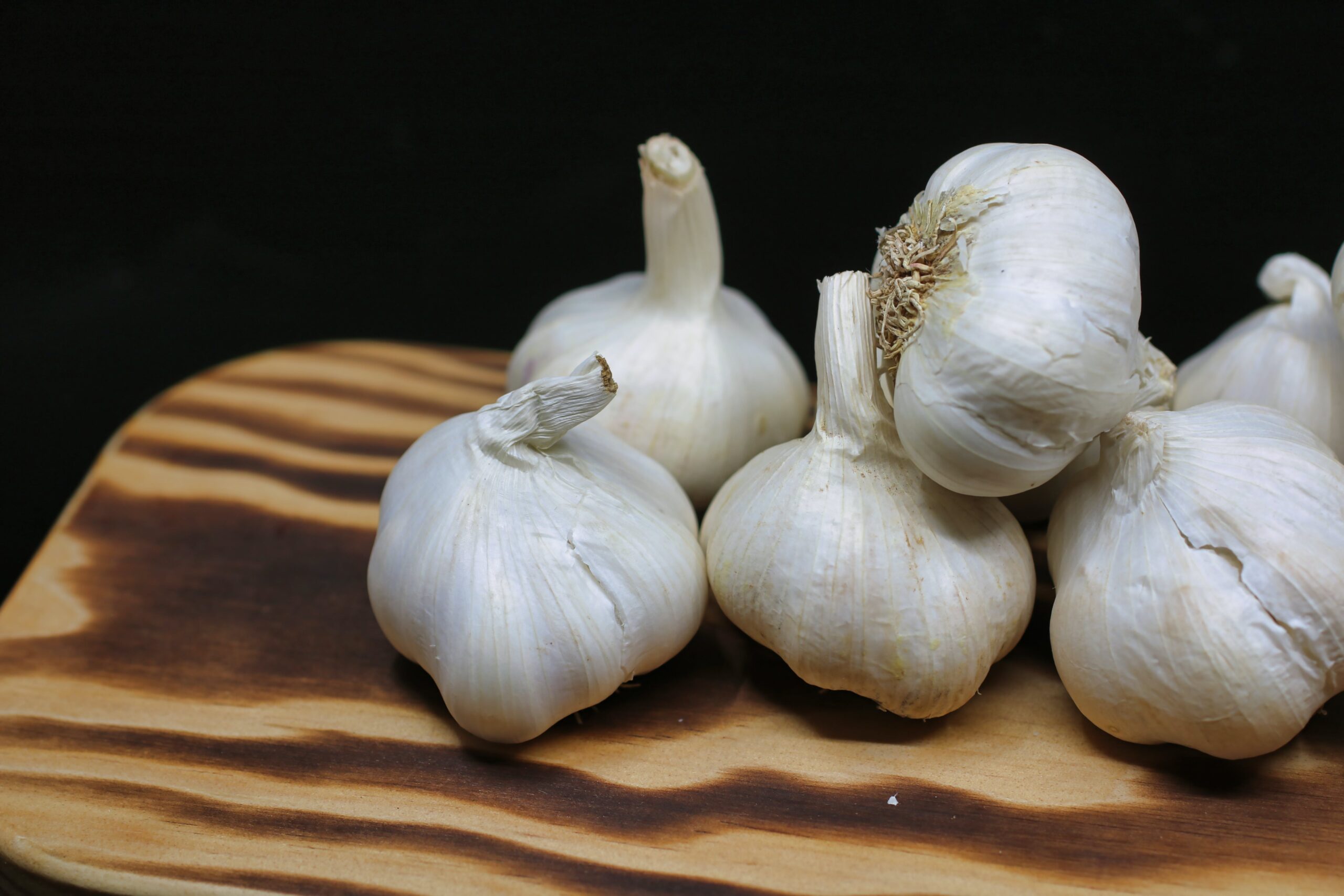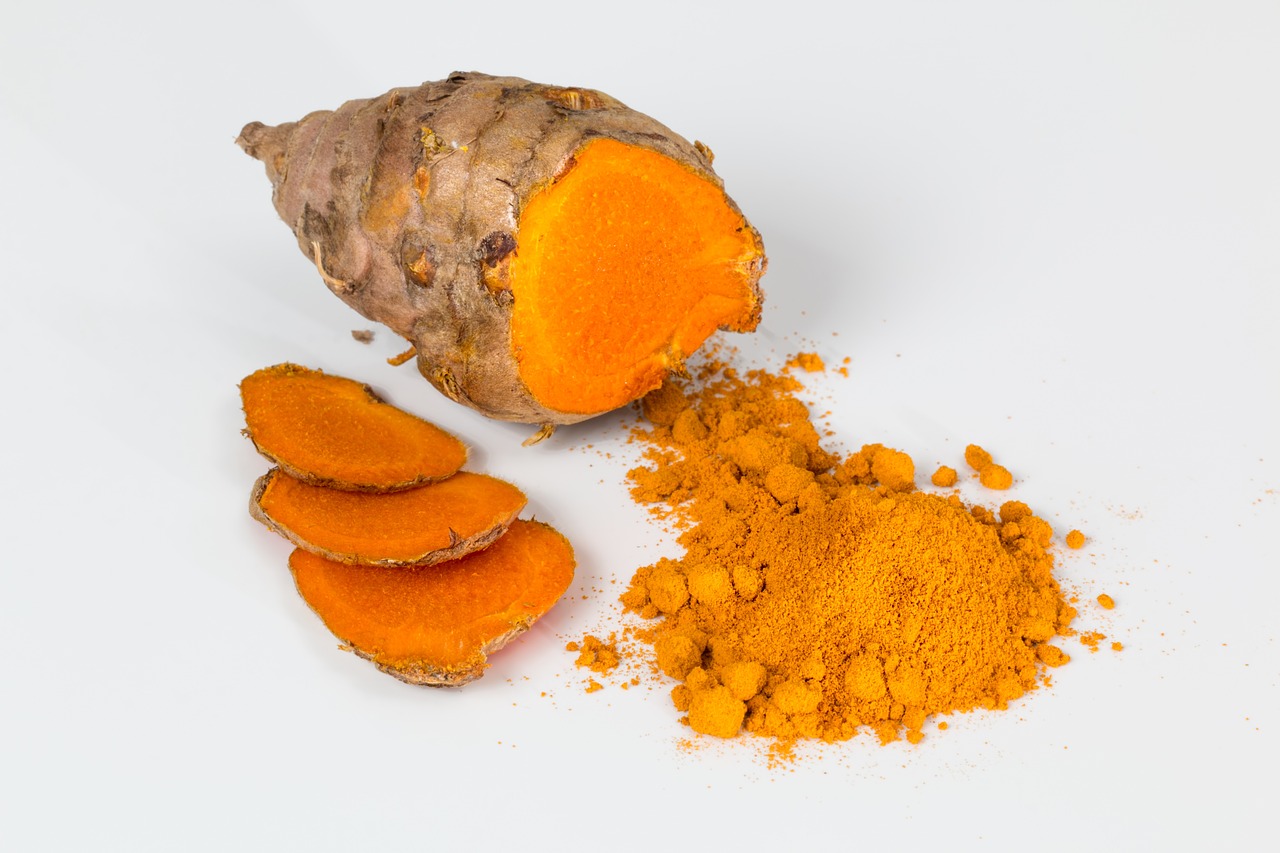
Allium sativum, the scientific name for garlic, has been utilized for both culinary and medicinal purposes for ages. Sulfur compounds such as allicin, alliin, and others are responsible for the unique smell and scent of garlic.
Nutritional Content of Garlic:
A food high in nutrients, garlic offers a variety of vitamins, minerals, and antioxidants. Below is a summary of some important elements that garlic contains:
- Allicin: thought to possess antibacterial and antifungal qualities, this sulfur component gives garlic its distinct aroma.
- Vitamins: Vitamin C, vitamin B6, and trace levels of other vitamins are present in garlic.
- Minerals: Manganese, selenium, and phosphorus are among the minerals that are abundant in it
- Antioxidants:Garlic is rich in antioxidants, including quercetin, which has anti-inflammatory properties.
Health Benefits of Garlic:
1. Health of the Heart: Garlic is linked to several cardiovascular advantages. It might assist in lowering cholesterol, blood pressure, and enhancing general heart health. These cardiovascular effects are thought to be related to the sulfur molecules found in garlic.
2. Antiviral and Antibacterial Activities: One of the main ingredients in garlic, allicin, has strong antiviral and antibacterial qualities. It might strengthen the immune system and aid in the body’s defense against illnesses.
3. Inflammatory-Reduction Benefits: Anti-inflammatory chemicals found in garlic may help lessen inflammation throughout the body. Chronic inflammation has been connected to a number of illnesses, such as heart disease and several forms of cancer.
4. Cancer Prevention: According to some research, eating garlic may lower your chance of developing some cancers, especially digestive system malignancies including colorectal and stomach cancer.
5. Immune System Support : Garlic is well-known for strengthening the immune system. Frequent ingestion might improve the immune system’s capacity to fight off infections.
6. Improved Blood Sugar Control: Research has shown that garlic may enhance insulin sensitivity and help with blood sugar regulation, which is advantageous for people with diabetes or those who are at risk of getting the disease.
7. Detoxification: Garlic aids in the body’s natural removal of toxic substances by supporting these processes.
8. Respiratory Health: Traditionally, respiratory diseases have been treated with garlic. It might be advantageous for ailments .
Guides for Including Garlic in Your Diet:
There are many ways to enjoy garlic in food:
- Intel: Minced raw garlic can be added to dips, dressings, and salads.
- Prepared: Garlic loses some of its flavor when cooked. It can be added to sauces, stews, and soups after being sautéed with vegetables.
- Spread: The flavor of roasted garlic is creamy and sweet. It can be used as a tasty condiment, spread on bread, or mixed with mashed potatoes.
Additions: There are garlic supplements available for those who would prefer a more concentrated form or who wish to avoid the distinct smell associated with raw garlic, such as garlic extract or garlic oil capsules.
It’s important to remember that even though garlic has many health benefits, those who take certain drugs or have certain medical conditions should speak with a healthcare provider before adding a lot of garlic to their diet or taking supplements.




